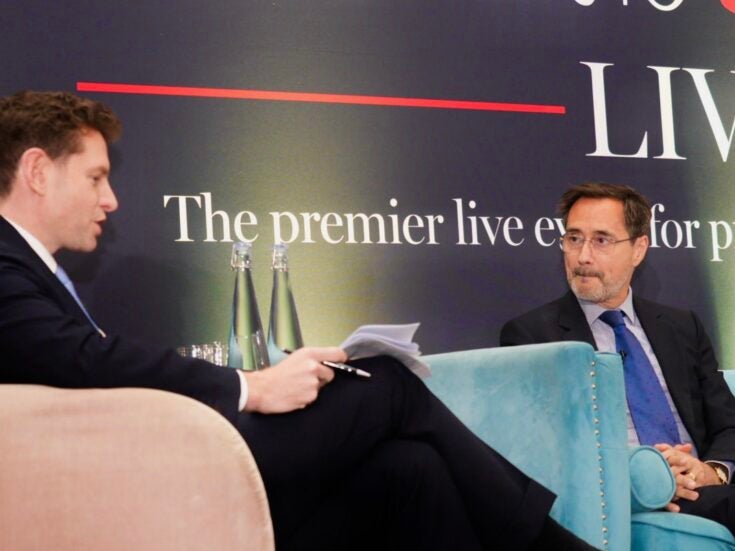
How should Barack Obama approach the mighty Sovereign Wealth Fund that comes with the presidency? With extreme caution, says Rob Cox
President-elect Barack Obama will inherit the governmental equivalent of an American Express Platinum card. Thanks to outgoing President George W. Bush, the 47-year-old Democratic Senator from Illinois will have, at his fingertips, that accoutrement that up to now only the world’s richest of oil sheikhs and Asian mercantilists have sported: his very own Sovereign Wealth Fund.
But the man who whooped his rival Senator John McCain to take possession of the Oval Office needs to be careful how he spends the $700 billion that the United States Congress bequeathed to Bush’s Treasury Secretary Henry M. Paulson. The money was pledged to unthaw the American financial system, helping to prop up troubled banks and keeping the lubricant of capitalism — credit — greasing the wheels of commerce.
Indeed, by the time Obama crushed McCain in the biggest Democratic presidential landslide since Jimmy Carter trounced Gerald Ford, Paulson had sprinkled some $160 billion of funds from the Troubled Asset Relief Program into nine of the country’s biggest financial institutions and a handful of smaller banks.
The trouble is that everyone seems to want a piece of President Obama’s Sovereign Wealth Fund. The lobbyists of K-Street have been grinding their Gucci loafers through the halls of Congress and the hotel lobbies of the Obama transition team to convince the powers that be to cast a bit of the Tarp fairy-dust their way.
First came the insurers, who needed it to shore up their commitments to American pensioners, particularly those with guaranteed payments through variable annuities and other products. Close behind followed the financing arms of the auto-makers, led by GMAC, the business controlled by private-equity fund Cerberus and General Motors.
The president needs to just say no. Even though the Tarp money has already been allocated by Congress, Obama should save his powder for more deserving cases — and ones that will not further distort the markets, and have a realistic chance of doing something novel for a government: making a return on their investment.
The banks that the Tarp has invested in have a realistic chance of doing just that. Take the first $125 billion that was plugged into banks including JP Morgan, Wells Fargo, Citigroup, Bank of America, State Street, Morgan Stanley and Goldman Sachs.
In Paulson’s words, the money represents ‘an investment, not an expenditure’. Run the numbers to see what it would take for Uncle Sam to get his pennies back — plus a modest bonus for his troubles — and Paulson might just be right.
The Treasury is receiving preferred stock that pays a 5 per cent annual dividend. On the first $125 billion invested, that’s $6.25 billion a year — or $31.25 billion over five years, at which point the dividends rise to 9 per cent. Since the banks will be likely to pay them off before then, the Treasury can probably finance its investment by selling five-year bonds, which just after Election Day yielded 2.5 per cent.
That means the difference between the United States Treasury’s cost of funds and the yield on the preference shares is 2.5 percentage points — which would yield a profit of $15.6 billion over five years. That supports Paulson’s assertion that ‘there is no reason to expect this program will cost taxpayers anything’.
The government is also receiving warrants — essentially options — to purchase common stock in the banks to the tune of 15 per cent of its preferred investments, or some $18.8 billion on the original $125 billion invested. If the banks’s shares don’t budge, these could end up being worth nothing. If the shares double during the ten-year term of the warrants — hardly an unreasonable hope, as that would only return financial stocks to their level of a year ago — the Treasury could make that amount of profit.
Based on standard option valuation models, at the time of the investment the warrants will be worth about half that — essentially a $9.4 billion bonus for the Treasury. Fold this in and the Treasury looks set to reap about $25 billion over five years for shoring up the first nine banks. That’s a 20-per-cent return. Of course, a single bank collapse, particularly one the size of a Citigroup, would quickly turn those returns negative. And when annualised, that return can’t hold a candle to the performances expected of hedge funds or private equity firms.
And the bailout’s costs in general could increase US funding costs across the board. The extra cost the US government incurs when selling securities might erase gains from the bank investments. But if the plan limits economic distress, that’s probably a small price to pay.
But it is hard to see how this positive calculus applies easily to the automotive and industrial businesses that are clamouring for a slice of Obama’s Tarp. General Motors wants billions in federal aid to bridge its needs for cash — which it is burning at a prodigious pace of more than $1.2 billion a month — while it acquires Chrysler. The problem is that even if Obama shoves taxpayer funds into a merged GM-Chrysler, it won’t necessarily cure the company.
A government-backed GM-Chrysler would still have legacy costs related to workers’ pensions and healthcare liabilities. These would still leave GM-Chrysler and its slightly less troubled rival Ford Motor at a competitive disadvantage to Japanese and European rivals.
Oh, and the government money would not solve their other problem overnight: consumers don’t really like their cars that much. The same argument could be made for other industries, such as newspapers, that might rightly line up behind the car-makers if Obama gives them their desired handouts.
President Obama inherits many financial troubles — and a tempting pot of money with which to solve them. But like a Platinum Amex, the American people would be better off if it has some spending limits.







